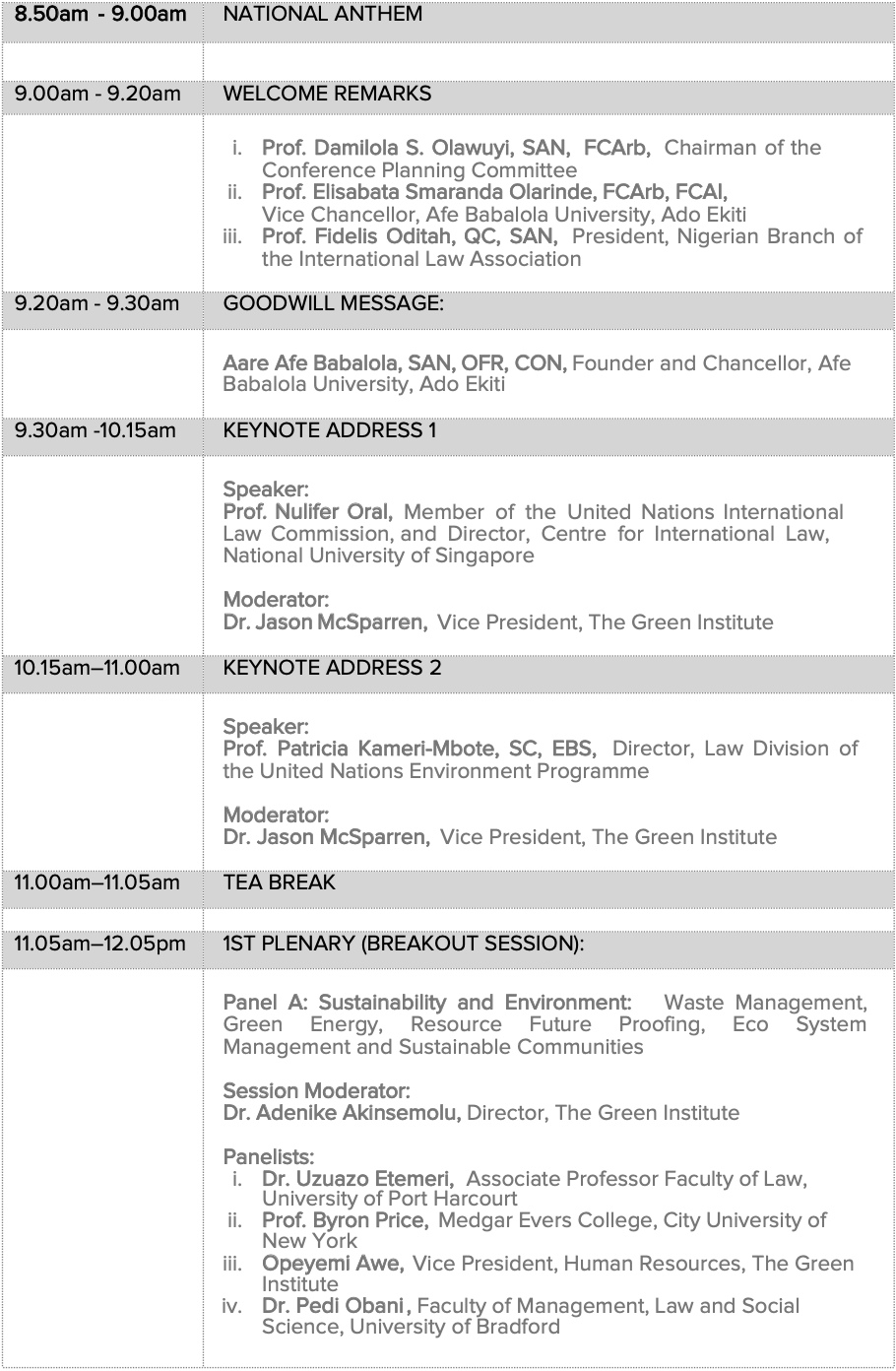The plenary session and panels will provide an opportunity for sharing information on innovative approaches for strengthening the implementation of environmental treaties at national, regional, and local levels. We invite original research articles and papers from world leaders, government officials, experts, professionals, and members of pro-sustainability organizations.
Speakers and participants should submit their work based on the themes below:
Governance and Leadership
Legislation: Establishing legal frameworks that enable the enactment of environmental laws and subsequent enforcement
Education: Promoting essential awareness of environmental impacts of human activities at all levels
Finance: Allocating funds for enforcement of environmental protection laws and budgetary analysis of human activities to the environment
Politics: Promoting the ideologies of pro-sustainability groups and widespread consultation when enacting new environmental laws
Leadership: Syncing community and national leadership goals to align with sustainability
Energy
Natural Resource Audits: Budgetary inclusion of natural resources, including green energy, when making revenue allocations
Renewable Energy: Exploring and developing sustainable solutions around replenishable sources of energy
Smart Use: Improved utilization of environmental resources and advocating for laws promoting recycling
Investment and Diversification: Creating environmental laws that promote investment in renewable energy and a shift from fossil fuels
Research: Provision of research grants and incentives for breakthrough inventions in the renewable energy space
Sustainability and Environment
Waste Management: Creating a sustainable governance structure to resolve the challenges associated with proper waste disposal and recycling
Green Energy: Promoting laws that advocate adequate investments into green energy and plant resources with sustainability in mind
Resource Future Proofing: Analyzing the impact human activities have on the environment's resource reserves to ensure enough for future generations
Ecosystem Management: Provision of laws that protect the natural ecosystem and make for the most minimal interruption by humans
Sustainable Communities: Designing roadmaps towards sustainable communities and green cities in the nearest future
Economics
Market Forces: Balancing demand and supply for environmental resources to avoid drastic depletion or artificial disasters
Recycling: Assessing the benefits of recycling to the environment and national economy when planning fiscal budgets
Policy-Making: Provision of favorable economic policies that reduce the impact of human activities on the environment
Pricing: Devolving from price monopolies and regulation of natural resource pricing to foster competition and innovations
Long-Term Analysis: Evaluating the overall benefits environmental laws provided to the environment and different species over the years
Social Equity and Culture
Sensitization and Increased Awareness: Blending environmental laws into existing cultural frameworks for increased grassroots sensitization
Social Diversification: Acknowledging the role every human has to play in the fight for a better planet, irrespective of culture, race, age, occupation, or status
Cultural Stability: Analyzing cultural frameworks when enacting environmental laws to promote better enforcement and reduce drawbacks
Equal Access: Promoting greater reach for breakthrough innovations in the renewable energy space for better utilization of resources
Grassroots Involvement: Employing cultural institutions to create awareness of environmental laws and promote enforcement







